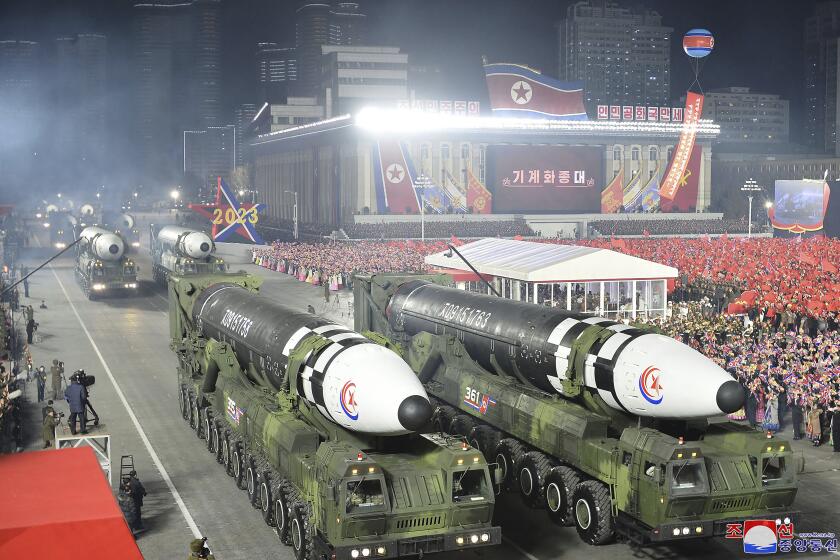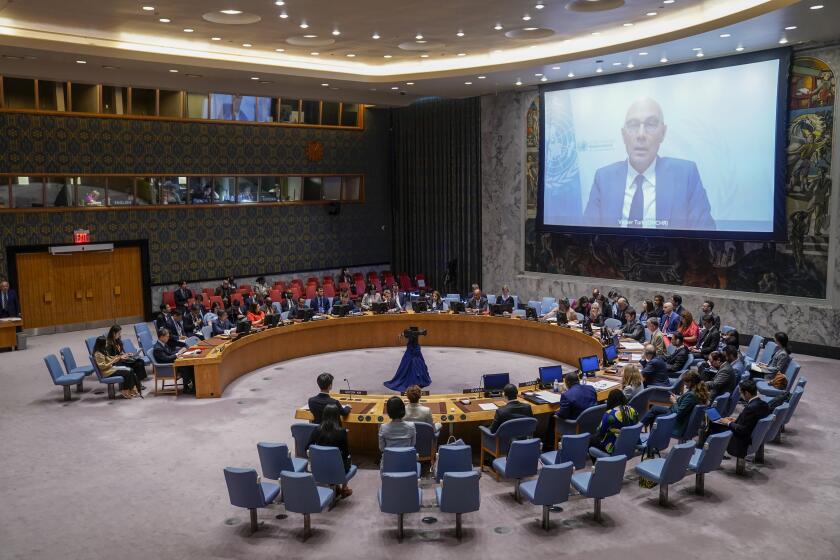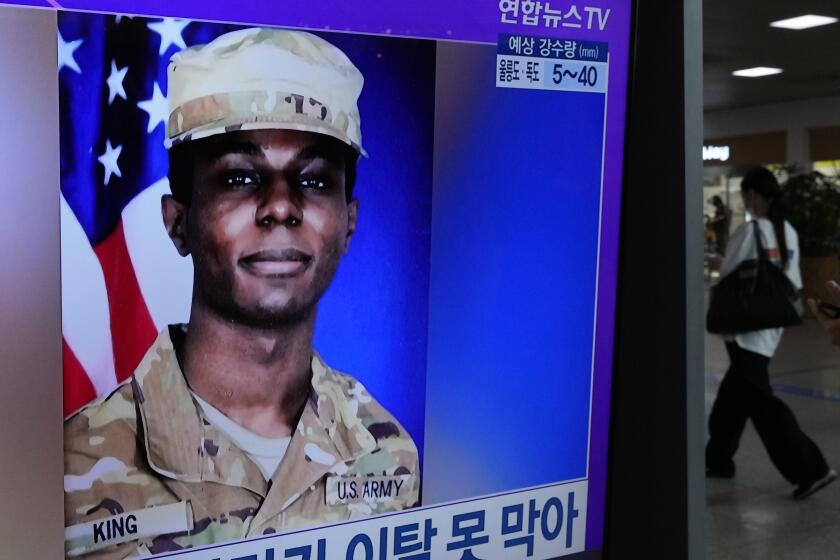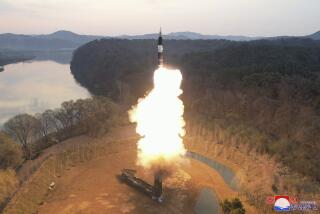North Korea claims new submarine can launch nuclear weapons, but there are doubts
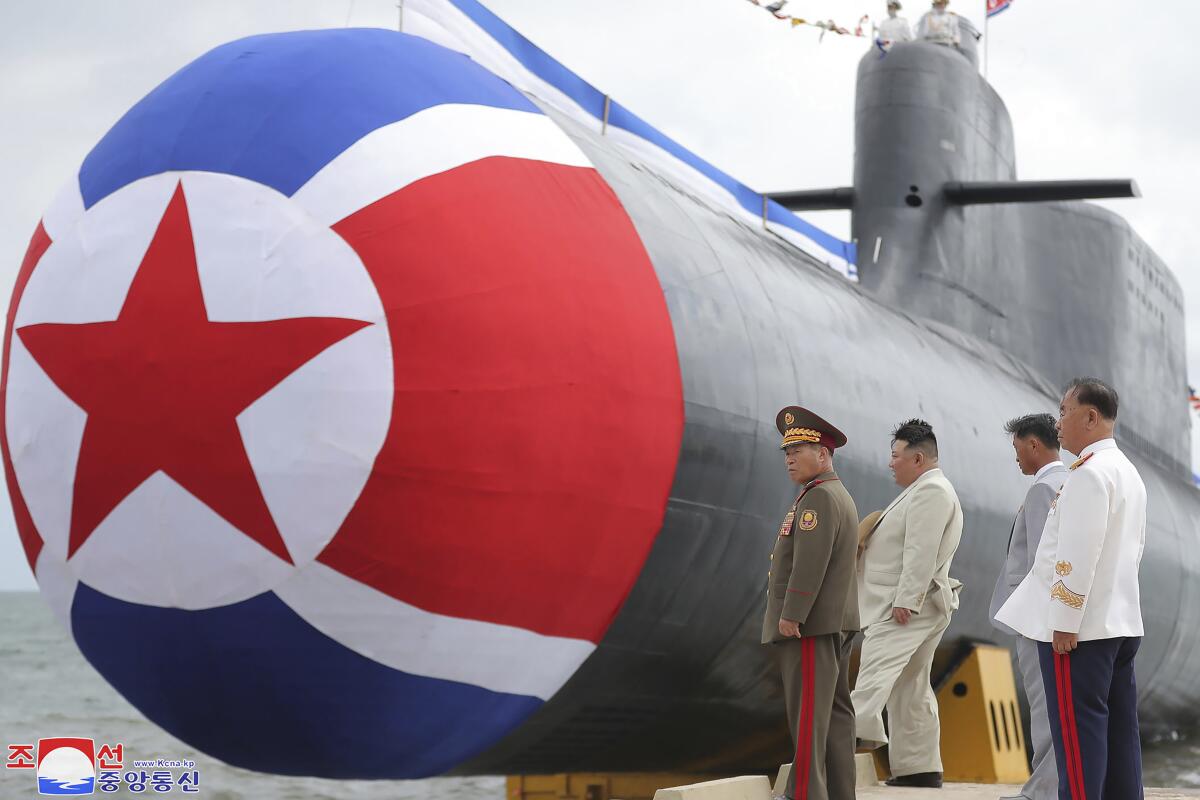
SEOUL ‚ÄĒ North Korea said Friday that its new submarine has nuclear-attack capabilities after years of development. Leader Kim Jong Un described the milestone as crucial in his efforts to build a nuclear-armed navy to counter the U.S. and its Asian allies.
The North’s official Korean Central News Agency said the vessel, named Hero Kim Kun Ok, is designed to launch tactical nuclear weapons from underwater but did not specify the number of missiles it could carry or fire.
South Korean officials were skeptical that the submarine would work as the North described and said it probably wasn’t ready for operational duty. Still, the vessel’s development underscored how Pyongyang continues to try to extend the range of its nuclear arsenal with systems that are harder to detect in advance.
Based on Kim’s comments and photos by North Korean state media, it’s likely that the submarine is the same one he inspected in 2019 while it was under construction. At the time, experts assessed it as an effort to convert an existing Romeo-class submarine.
The submarine appears to have at least 10 launch tubes ‚ÄĒ four of them apparently larger than the other six ‚ÄĒ that are possibly designed for missiles.
‚ÄúThis submarine, though heavily modified, is based on 1950s Soviet-origin technology and will have inherent limitations. Nevertheless, in terms of complicating the targeting challenges that the U.S. and its allies will face, the submarine will serve North Korea‚Äôs purposes,‚ÄĚ said Ankit Panda, an expert with the Carnegie Endowment for International Peace.
North Korea’s recent resumption of missile tests underscores its resolve to win recognition as a nuclear state and receive outside concessions.
In recent years, North Korea has tested a variety of missiles designed to be fired from submarines as it pursues the ability to conduct nuclear strikes from underwater. In theory, such a capacity would bolster its deterrent by ensuring a surviving means to retaliate after the country absorbed a nuclear attack on land.
Ballistic missile submarines would also add a maritime threat to the North’s growing collection of solid-fuel weapons, fired from land vehicles, that are designed to overwhelm missile defenses in South Korea and Japan.
Still, it would take considerable time, resources and technological improvements for the heavily sanctioned nation to build a fleet of at least several submarines that could travel quietly and execute attacks reliably, analysts say.
Satellite photos analyzed by the Associated Press on Friday placed the submarine and the ceremony that Kim attended in the eastern port city of Sinpo, where North Korea runs a major shipyard developing submarines.
The U.N. rights chief says North Korea is increasing repression of human rights as people become more desperate while the economic situation worsens.
The images, taken just before 8 a.m. local time Thursday by Planet Labs PBC, showed the submarine alongside a dock. The submarine appeared to bear the red, white and blue bunting seen in photographs released by North Korean state media Friday. Other details of the state-released photographs matched known features surrounding the facility.
The submarine still appeared to be at port Friday morning, according to other images taken by Planet Labs. The James Martin Center for Nonproliferation Studies first identified the submarine’s location.
In speeches at the vessel’s launching ceremony Wednesday and an onboard inspection Thursday, Kim expressed satisfaction that his country had acquired its own nuclear-attack submarine to counter the advanced naval assets of the U.S., KCNA said. In July, the U.S. docked a nuclear-capable ballistic missile submarine in South Korea for the first time since the 1980s.
Kim said the country is also pursuing a nuclear-propelled submarine and plans to remodel its existing submarines and surface vessels so they can handle nuclear weapons, describing the building of a nuclear-capable army as an ‚Äúurgent task.‚ÄĚ
It’s North Korea’s first confirmation of detention of Private 2nd Class Travis King, who in July became the first American detained in the North in nearly five years.
South Korea‚Äôs military insisted that North Korea was exaggerating the submarine‚Äôs capabilities. The South‚Äôs Joint Chiefs of Staff said the North would have needed to increase the size of the bridge and other parts of the original vessel to accommodate missile-launch systems, but that the appearance of the new submarine suggested it could ‚Äúnot be operated normally.‚ÄĚ
‚ÄúThere are signs of deception or exaggeration,‚ÄĚ the Joint Chiefs of Staff said in a statement, without elaborating.
Kim in recent weeks has been emphasizing the need to strengthen the country’s navy. Some analysts say the focus could be driven by a desire to expand military cooperation with Russia, which has suggested the possibility of combined military exercises between the countries.
There’s also speculation that Kim is preparing to visit Russia for a meeting with President Vladimir Putin to discuss North Korean arms sales to refill Russian reserves drained by its war on Ukraine.
Breaking News
Get breaking news, investigations, analysis and more signature journalism from the Los Angeles Times in your inbox.
You may occasionally receive promotional content from the Los Angeles Times.
In exchange for providing Russia with artillery shells and other ammunition, North Korea could seek badly needed economic aid and also advanced weapons technologies, including those related to submarine-launched ballistic missile systems, intercontinental ballistic missiles and military spy satellites, analysts say.
Kim Inae, a spokesperson at South Korea‚Äôs Unification Ministry, which handles inter-Korean affairs, said it was ‚Äúdeplorable‚ÄĚ that North Korea was continuing to channel its limited resources into developing weapons while ignoring the struggles of its deeply impoverished people.
More to Read
Sign up for Essential California
The most important California stories and recommendations in your inbox every morning.
You may occasionally receive promotional content from the Los Angeles Times.
